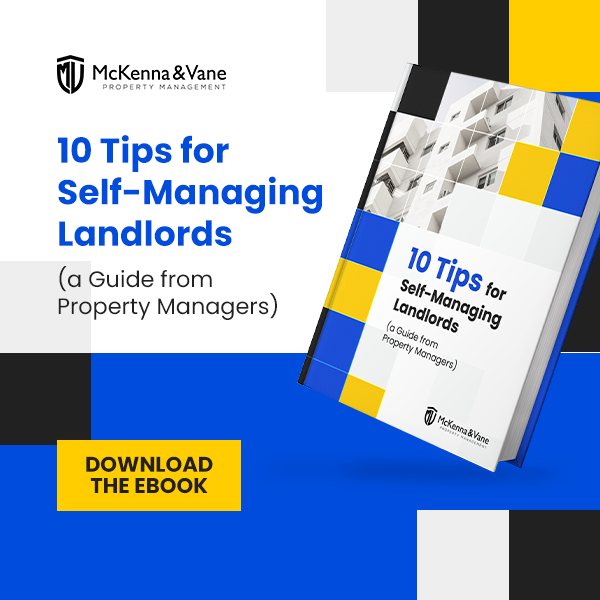What is the "implied covenant of quiet enjoyment"?

The "implied covenant of quiet enjoyment" is a real estate term that may not be clearly covered in the leasing agreement. But tenants are afforded this right regardless of whether it is on the lease or not.
Sometimes called the implied warranty, the implied covenant of quiet enjoyment protects tenants from disturbances in their homes. It safeguards their right to rent a home and enjoy peaceful habitation within it. It is essential for landlords to be aware of this covenant and fully understand it.
McKenna & Vane have put together this article in the hope that all landlords understand their rights and responsibilities as per the “implied covenant of quiet enjoyment”.
Defining an “Implied Covenant”
An implied covenant of quiet enjoyment may not be expressly outlined in a leasing contract. But just because it’s not mentioned in the rental agreement, it doesn’t mean it’s not law. Additionally, landlords cannot ask their tenants to waive this right when signing a lease.
Defining “Quiet Enjoyment”
Tenants are entitled many rights when signing a lease or rental agreement. Some of which are:
- The right to rent a dwelling that’s habitable and offers them safety
- The right to enjoy peace and quiet
Defining “quiet enjoyment” absolutely can be a challenge. For one thing, no two breaches of the covenant are the same. Also, what a person considers to “quiet enjoyment” is subjective, so another person may not share those same views, which may create complaints.
So, to clarify, quiet enjoyment covenant obliges landlords to prevent any unreasonable disruptions to their tenants’ peace while they stay in the rental home. When a tenant sign up for a lease agreement, they’re given the right to:

Enjoy Reasonable Peace and Quiet
Every landlord should be mindful and take actionable steps to prevent disturbances in their rental home and deliver privacy to their tenant. They should respond to disturbances and work to resolve noise complaints to ensure they abide by the implied covenant of quiet enjoyment.
Exclusive Use of the Rental
Only you can gain entry provided that they’re carrying out their duties such as attending to maintenance and repair.
Experience Safety and Security in the Unit
The property owner must install security measures prior to welcoming the tenants into their rental place.
Live in a Habitable Rental
The rental premises must be equipped to provide basic utilities such as electricity, water, and heat.
When Can a Landlord Gain Entry to the Rental
Different states have different guidelines on when a landlord can freely access the leased premises without causing a breach of a tenants quiet enjoyment. In general, these situations are acceptable:
- When the tenancy ends, and an inspection must be carried out
- When they need to perform property upgrades and improvements
- When they have to set up services that a tenant requested
- When they need to issue an eviction notice. A law enforcement officer must also be present to accompany the landlord
- When the tenant has abandoned the property and has not left any notice of return with them
- When a court gave the order for them to enter the rental
- When there’s a scheduled property showing for potential renters, lenders, and buyers. Since the present tenant is moving out, the landlord needs to market the rental to potential tenants.
Keep in mind that many of these circumstances will require providng your tenant with proper notice in writing for your entry.
Specific times are also stipulated for some states on when landlords are permitted to enter the rental unit. In general, the period between 9 AM and 6 PM is acceptable. If the tenants and tenant had arranged another time beyond that then it’s also good as long as it’s agreed upon.

When an emergency occurs, landlords are permitted entry anytime. Fire, flooding and gas leaks are among the situations deemed as an emergency.
Common Violations to the Covenant of Quiet Enjoyment
A breach to a renter's right to quiet enjoyment typically requires more than just minor inconveniences. The following are common covenant of quiet enjoyment violations you should be aware of:
- Substantial interference with the unit, going inside the premises frequently or without issuing the right notice
- Snooping around the rental property occupied by the tenant
- Tenant harassment by the landlord, whether done face to face or through calls
- Inability to control excessive noise, nuisance and disruptive behaviors
- Refusal by the landlord to resolve noise complaints within their control
- Cutting off or placing restrictions on basic services such as hot water and electricity
- Failure to deliver on services and specified items contained in the leasing agreement
- Restricting the tenant from entertaining guests on the property or common areas
- Failure to schedule repairs on the property that would compromise the tenant’s safety and affect the property’s habitability. This could lead to the tenant claiming constructive eviction. Constructive eviction occurs when tenants are forced to break their lease early when the landlord fails to maintain the property, or when the landlord refuses tenant rights.
Reasonable Disturbances to a Tenant’s Quiet Enjoyment
There are a few circumstances that do not count as a breach of the covenant of quiet enjoyment, such as the following disturbances:
- Noise disturbances that are completely out of the landlord's control, like that from wildlife
- The footsteps from other tenants or neighbors living above them
- Performing landlord duties such as repair and maintenance work
- Calling up the tenant or knocking on their door to collect any unpaid rent

Tenant’s Obligation to Comply with Noise Ordinances
As a citizen, all tenants must adhere to state landlord tenant law, local regulations and noise ordinances, and they must observe and respect their neighbors’ right to quiet enjoyment.
Bottom Line
Being a landlord requires you to observe the implied covenant on quiet enjoyment as this is a given right granted to every renter by the law. If you need assistance in taking care of your rental home or any other aspect of property management, get in touch with McKenna & Vane.
